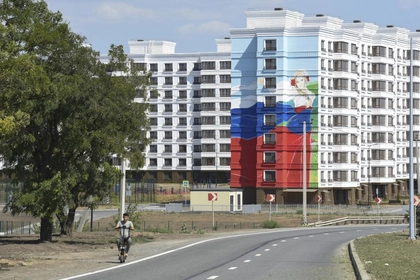A Moscow-based internet provider, Qwerty, has been inoperative for three days due to a cyberattack conducted by a Ukrainian group.
The IT Army of Ukraine, a loosely formed group of volunteer IT developers claimed responsibility for the attack on their Telegram channel.
JOIN US ON TELEGRAM
Follow our coverage of the war on the @Kyivpost_official.
“In Moscow, it's not only cold, but also, there's no internet. Qwerty, one of the largest internet providers in the enemy's capital, has been unable to restore service for three days due to our attack,” read the announcement.
They justified the action by highlighting that Qwerty was not just used by civilians, but also by Russian government agencies.
According to Down Radar, a Russian site that detects website availability, Qwerty has registered 127 crashes in Moscow over the last 24 hours, followed by a series of complaints from Russian users.
“For the second day in a row, the Internet falls off for several hours and works with wild interruptions. Most of the sites do not work, there is no ping with external resources, it is absolutely impossible to work!!!!” one user wrote.
Another user said the site had been down for three days, and complained that there had been no updates from the internet provider.
“At a minimum, this should be news on the website, not to mention social media. networks and messengers,” the user wrote.
Qwerty’s website still remained inaccessible at the time of writing.

Massive Russian Intel Cyberattack on Ukraine’s Justice Ministry
The group behind the attack was founded by tech developers in Ukraine who have utilized distributed denial-of-service (DDoS) attacks against Russian sites since the 2022 full-scale invasion. These attacks aim to render a target’s services inoperative by overwhelming the system with false requests.
The group has also developed tools and manuals on how to carry out cyberattacks that are accessible to anyone.
“IT ARMY is bringing Ukraine's victory in the war closer by depleting the economy of the aggressor country, disrupting the work of important financial, infrastructure, state services and the activities of large taxpayers.
“We also block enemy media propaganda and bring the truth about the war to their audiences. We want every resident of the aggressor country to feel and get tired of the aggression committed by their state,” the group described their mission on their site.
On Jan. 9, a different hacker group called Blackjack reportedly carried out cyberattacks against another Moscow-based internet service, M9com. That attack wiped out data from the provider’s website, mail server and cyber protection services. It also downloaded more than 10 gigabytes of data from the company's databases and published them on publicly accessible sites.
You can also highlight the text and press Ctrl + Enter






